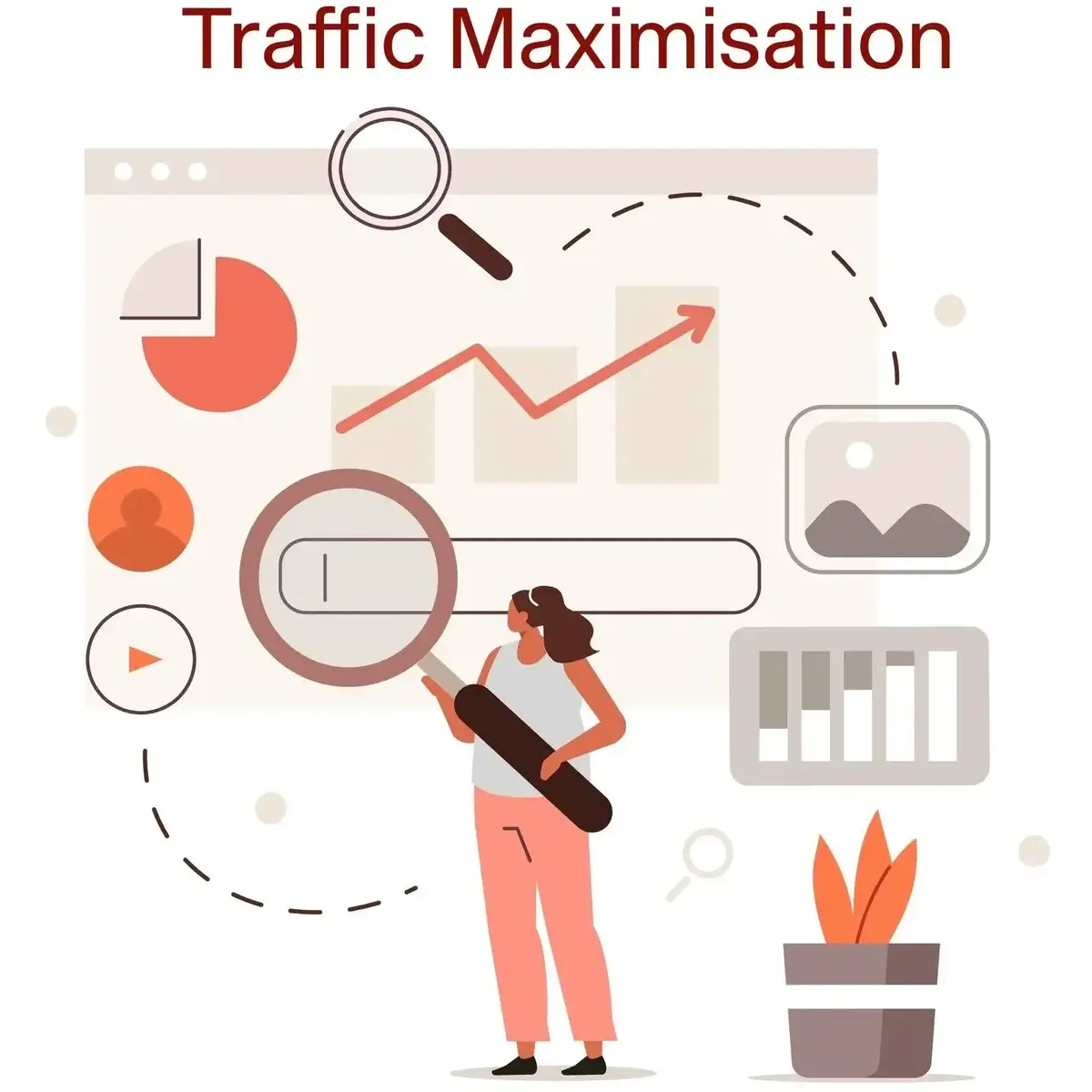Keyword research is an essential part of any SEO strategy. It involves identifying the words and phrases that people use to search for information online. By understanding what keywords are relevant to your business, you can optimize your website’s content to rank higher in search engine results pages (SERPs). In this article, we will provide a step-by-step guide on how to do keyword research for SEO.
To begin with, it is important to understand what keyword research is and why it is important. Keyword research helps you identify the words and phrases that people use to search for information related to your business. By targeting these keywords, you can increase the visibility of your website in search engine results pages (SERPs). This can lead to more traffic and ultimately more conversions.
Once you understand the importance of keyword research, the next step is to set up your keyword research tools. There are many tools available, both free and paid, that can help you identify relevant keywords for your business. These tools can provide information on search volume, competition, and other metrics that can help you evaluate the potential value of each keyword.
Key Takeaways
- Keyword research is essential for any SEO strategy.
- Setting up keyword research tools is the first step in the process.
- Evaluating and prioritizing keywords is crucial for success.
Understanding Keyword Research
Keyword research is the process of identifying the words and phrases that people use to search for information, products, or services on search engines. It is an essential part of SEO, as it helps website owners to optimize their content for search engines and improve their rankings. In this section, we will discuss the importance of keywords in SEO, the types of keywords, and search intent and user behaviour.
The Importance of Keywords in SEO
Keywords are the foundation of SEO. They are the words and phrases that people use to search for information on search engines. By optimizing your content for the right keywords, you can improve your visibility on search engines and attract more traffic to your website. However, it is essential to choose the right keywords that are relevant to your business and have a high search volume.
Types of Keywords
There are three types of keywords: short-tail, long-tail, and branded keywords. Short-tail keywords are short phrases that consist of one or two words, such as “SEO” or “digital marketing.” Long-tail keywords are longer phrases that consist of three or more words, such as “how to do keyword research for SEO.” Branded keywords are keywords that include your brand name, such as “Nike shoes.”
Long-tail keywords are more specific and have a lower search volume, but they are easier to rank for and attract more qualified traffic to your website. Short-tail keywords, on the other hand, have a higher search volume, but they are more competitive and attract less qualified traffic.
Search Intent and User Behavior
Search intent is the reason why people search for a particular keyword. It is essential to understand search intent to optimize your content for the right keywords and attract more qualified traffic to your website. There are four types of search intent: informational, navigational, transactional, and commercial investigation.
Informational search intent is when people search for information on a particular topic, such as “how to do keyword research for SEO.” Navigational search intent is when people search for a particular website or brand, such as “Nike shoes.” Transactional search intent is when people search for a product or service with the intention of making a purchase, such as “buy Nike shoes online.” Commercial investigation search intent is when people search for a product or service with the intention of comparing prices or features, such as “best Nike shoes for running.”
Understanding search intent and user behaviour can help you to optimize your content for the right keywords and attract more qualified traffic to your website. By providing valuable and relevant content that meets the user’s search intent, you can improve your rankings on search engines and attract more traffic to your website.
Setting Up Your Keyword Research Tools

Choosing the Right Tools
There are many keyword research tools available, and it can be challenging to know which one to choose. Some tools are free, while others require a subscription fee. Some tools are more comprehensive than others, and some are easier to use. It’s essential to choose a tool that fits your budget and requirements.
Google Keyword Planner
Google Keyword Planner is a free tool that provides valuable insights into the search terms people use on Google. It helps you to identify relevant keywords and phrases for your website. To use Google Keyword Planner, you need to have a Google Ads account. Once you have an account, you can access the tool from the Google Ads dashboard.
To use Google Keyword Planner effectively, you need to enter a seed keyword or phrase related to your website. The tool will then generate a list of related keywords and phrases with search volume data. You can use this data to identify the most relevant and popular keywords for your website.
Other Keyword Research Tools
There are many other keyword research tools available, both free and paid. Some popular options include Ahrefs, SEMrush, Moz, and Keyword Tool. These tools provide a range of features, such as keyword suggestions, search volume data, and competitor analysis.
When choosing a keyword research tool, it’s essential to consider your budget, requirements, and level of expertise. Some tools are more complex than others, and it’s essential to choose a tool that you can use effectively.
In summary, setting up the right keyword research tools is crucial for any SEO strategy. Google Keyword Planner is a free and valuable tool that provides insights into the search terms people use on Google. Other keyword research tools, such as Ahrefs and SEMrush, provide additional features and insights. When choosing a tool, it’s essential to consider your budget, requirements, and level of expertise.
Conducting Your Keyword Research

Analyzing Competitor Keywords
One way to find relevant keywords is by analyzing your competitors’ keywords. This can help you identify keywords that you may have missed or overlooked. You can use various tools to analyze your competitor’s keywords, such as Ahrefs, SEMrush, and Moz.
Identifying Long-Tail Keywords
Long-tail keywords are longer and more specific keyword phrases that can help you target a specific audience. They typically have lower search volume but higher conversion rates. Identifying long-tail keywords can help you optimize your content for specific search queries and improve your website’s ranking.
Using Keyword Research Metrics
Keyword research metrics such as search volume, keyword difficulty, and cost-per-click (CPC) can help you determine the relevancy and potential of a keyword. Search volume refers to the number of searches a keyword receives per month, while keyword difficulty measures how hard it is to rank for a particular keyword. CPC refers to the average cost per click for a keyword in paid search advertising.
By using these metrics, you can prioritize your keywords and focus on the ones that are most relevant and have the highest potential for ranking. It’s essential to conduct thorough keyword research to ensure that you’re targeting the right keywords and optimizing your content for the right audience.
Evaluating Keywords

Keyword Difficulty
Keyword difficulty refers to how hard it is to rank for a particular keyword. It is important to choose keywords with a difficulty level that is appropriate for your website. Keywords with a high difficulty level may take longer to rank for, while low-difficulty keywords may not provide enough traffic to your website. There are several tools available to help you determine keyword difficulty, including Ahrefs, Moz, and SEMrush.
Search Volume
Search volume refers to the number of searches that a particular keyword receives in a given period. It is important to choose keywords with a suitable search volume to ensure that you are targeting keywords that people are actually searching for. However, it is also important to note that keywords with a high search volume may be more competitive, making it harder to rank for them. You can use tools like Google Keyword Planner, SEMrush, and Ahrefs to determine search volume.
Relevance and Context
When evaluating keywords, it is important to consider their relevance to your website and the context in which they are used. Choosing keywords that are relevant to your website and fit within the context of your content can help improve your website’s relevance and authority. It is also important to consider user intent when choosing keywords. This means understanding what users are searching for and what they hope to find when they search for a particular keyword.
In conclusion, evaluating keywords is a crucial step in conducting keyword research for SEO. By considering factors such as keyword difficulty, search volume, relevance, and context, you can choose keywords that are relevant, appropriate, and likely to drive traffic to your website.
Organizing and Prioritizing Keywords

Creating Keyword Lists
Before you can prioritize your keywords, you need to create a comprehensive list. There are several ways to generate keyword ideas, including:
- Brainstorming: Start by thinking about the products, services, or topics that your website covers. Make a list of potential keywords that are relevant to your business.
- Competitor Analysis: Look at the keywords that your competitors are targeting. Use tools like Ahrefs or SEMrush to identify their top-performing keywords.
- Keyword Research Tools: Use a keyword research tool like Google Keyword Planner, Ubersuggest, or Moz Keyword Explorer to generate a list of potential keywords.
Once you have a list of potential keywords, group them into relevant categories or themes. This will make it easier to prioritize them later on.
Prioritizing Based on Goals
The next step is to prioritize your keywords based on your goals. Different keywords will have different levels of importance depending on your objectives. For example, if you are launching a new product, you may want to prioritize keywords that are related to that product.
Here are some factors to consider when prioritizing your keywords:
- Search Volume: Keywords with higher search volumes may have more potential to drive traffic to your website.
- Competition: Keywords with high competition may be more difficult to rank for. Consider targeting long-tail keywords with lower competition.
- Relevance: Prioritize keywords that are most relevant to your business and target audience.
Aligning Keywords with Content Strategy
Finally, it’s important to align your keywords with your content strategy. Your content should be optimized for the keywords that you are targeting. This will help to improve your chances of ranking in search results and driving traffic to your website.
Here are some tips for aligning your keywords with your content strategy:
- Use keywords in your page titles, meta descriptions, and header tags.
- Include keywords in your content, but avoid keyword stuffing.
- Create content that is relevant and valuable to your target audience.
By organizing and prioritizing your keywords based on your goals and content strategy, you can improve the effectiveness of your SEO efforts.
Implementing Keywords in Your SEO Strategy

On-Page SEO Techniques
On-page SEO refers to the optimization of individual web pages to rank higher and earn more relevant traffic in search engines. Here are some on-page SEO techniques to implement your keywords:
- Title Tag Optimization: Include your primary keyword in the title tag of your page. Keep it under 60 characters and make it compelling to attract clicks.
- Meta Description Optimization: Write a brief and informative meta description that includes your primary keyword. Keep it under 155 characters and make it compelling to attract clicks.
- Header Tag Optimization: Use header tags (H1, H2, H3) to organize your content and include your primary keyword in at least one of them.
- URL Optimization: Include your primary keyword in the URL of your page. Keep it short and descriptive.
Content Creation and Optimization
Creating high-quality and optimized content is crucial for ranking higher in search engines. Here are some tips for creating and optimizing your content with your target keywords:
- Keyword Density: Use your primary keyword and related keywords throughout your content, but don’t overdo it. Aim for a keyword density of 1-2%.
- Content Structure: Organize your content into clear sections and use header tags to make it easy to read. Include your primary keyword in at least one header tag.
- Image Optimization: Optimize your images by including your primary keyword in the alt text and file name.
Monitoring Keyword Performance
It’s important to monitor the performance of your keywords to see how they’re impacting your SEO strategy. Here are some tools and techniques to help you monitor keyword performance:
- Google Analytics: Use Google Analytics to track the traffic and engagement of your pages. Look for trends and patterns in keyword performance.
- Rank Tracking Tools: Use rank tracking tools like Ahrefs or SEMrush to track your keyword rankings and see how they’re changing over time.
- Conversion Tracking: Use conversion tracking to see how your keywords are impacting your business goals. Track leads, sales, and other metrics to measure the success of your SEO strategy.
By implementing these techniques, you can effectively use your target keywords to improve your SEO strategy and attract more relevant traffic to your website.
Conclusion
Keyword research is a crucial step in any SEO strategy. It helps you understand what your audience is searching for and what keywords they use to find the information they need. By using the right keywords in your content, you can increase your chances of ranking higher in search engine results pages (SERPs) and drive more traffic to your website.
There are many tools available to help you conduct keyword research, such as Google Keyword Planner, Ahrefs, SEMrush, and Moz. These tools provide valuable insights into search volume, competition, and related keywords that can help you identify the best keywords to target.
When conducting keyword research, it’s important to keep in mind the intent behind the search. You want to target keywords that are relevant to your business and that your audience is likely to use when searching for information related to your products or services.
It’s also important to focus on long-tail keywords, which are longer and more specific phrases that people use when searching for information. These keywords often have less competition and can be easier to rank for than broader, more generic keywords.
In conclusion, keyword research is a vital component of any successful SEO strategy. By using the right tools and focusing on relevant, long-tail keywords, you can improve your chances of ranking higher in search engine results pages and driving more traffic to your website.
🌟 Elevate Your Online Impact with Malaysia’s Premier SEO Agency! 🌟 Our dynamic team is poised to revolutionise your digital footprint. Seize the opportunity – Connect with us today for an unforgettable digital journey!
Frequently Asked Questions
What are the steps to conduct effective keyword research for SEO?
To conduct effective keyword research for SEO, one should start by brainstorming a list of potential keywords that are relevant to their website’s content. Then, they should use keyword research tools to identify high-traffic keywords that are relevant to their target audience. Once they have a list of potential keywords, they should analyze the competition for each keyword to determine its difficulty level. Finally, they should select the most valuable keywords and integrate them into their website’s content and SEO strategy.
How can I identify high-traffic keywords for SEO optimization?
To identify high-traffic keywords for SEO optimization, one should use keyword research tools such as Ahrefs, SEMrush, or Google Keyword Planner. These tools can provide valuable insights into the search volume, competition, and potential traffic for each keyword. Additionally, one can analyze their competitors’ websites to identify the keywords that are driving the most traffic to their site.
What tools are available for uncovering valuable SEO keywords?
There are several tools available for uncovering valuable SEO keywords, including Ahrefs, SEMrush, Google Keyword Planner, and Moz Keyword Explorer. These tools can provide valuable insights into keyword search volume, competition, and potential traffic. Additionally, Google Trends can be used to identify trending keywords and topics.
What is the process for analyzing keyword competition in SEO?
To analyze keyword competition in SEO, one should use keyword research tools to determine the difficulty level of each keyword. This can be done by analyzing the number of websites and pages that are currently ranking for the keyword, as well as the quality of those websites and pages. Additionally, one can analyze the backlink profiles of their competitors to determine the strength of their SEO strategy.
How do I integrate selected keywords into my website’s SEO strategy?
To integrate selected keywords into a website’s SEO strategy, one should ensure that the keywords are included in the website’s content, meta tags, and URLs. Additionally, one should use internal linking to connect relevant pages and content on the website. It’s important to avoid keyword stuffing and to ensure that the content is high-quality and valuable to the target audience.
What are the best practices for tracking the performance of keywords in SEO?
The best practices for tracking the performance of keywords in SEO include monitoring keyword rankings, traffic, and conversion rates. This can be done using tools such as Google Analytics and Ahrefs. Additionally, one should regularly analyze their website’s content and SEO strategy to ensure that it is aligned with their target audience and business goals.
 Singapore
Singapore  Singapore
Singapore Malaysia
Malaysia








 Search Engine Optimization (SEO) is a constantly evolving field, and staying ahead of the curve is crucial for online visibility and success. As we step into 2024, several trends are shaping the SEO landscape.
Search Engine Optimization (SEO) is a constantly evolving field, and staying ahead of the curve is crucial for online visibility and success. As we step into 2024, several trends are shaping the SEO landscape. As we move towards 2024, it becomes increasingly evident that AI and SEO are becoming indispensable partners in the digital marketing landscape. The integration of AI in SEO is expected to make an even more significant impact on how search engines present search results.
As we move towards 2024, it becomes increasingly evident that AI and SEO are becoming indispensable partners in the digital marketing landscape. The integration of AI in SEO is expected to make an even more significant impact on how search engines present search results. In 2024, a successful SEO strategy will require a strong focus on content. Creating valuable, informative, and relevant content will be crucial to ranking high in search engine results pages (SERPs).
In 2024, a successful SEO strategy will require a strong focus on content. Creating valuable, informative, and relevant content will be crucial to ranking high in search engine results pages (SERPs). User experience (UX) has become increasingly important in SEO, and this trend is expected to continue in 2024. Google’s Core Web Vitals, which were introduced in 2020, assess the user experience on websites by focusing on three key areas: loading speed, interactivity, and visual stability. Websites that provide a good user experience are more likely to rank higher in search engine results pages (SERPs).
User experience (UX) has become increasingly important in SEO, and this trend is expected to continue in 2024. Google’s Core Web Vitals, which were introduced in 2020, assess the user experience on websites by focusing on three key areas: loading speed, interactivity, and visual stability. Websites that provide a good user experience are more likely to rank higher in search engine results pages (SERPs). In 2024, optimizing for mobile and voice search will continue to be crucial for SEO success. With the increasing use of smartphones and smart speakers, it is essential to ensure that your website is mobile-friendly and optimized for voice search.
In 2024, optimizing for mobile and voice search will continue to be crucial for SEO success. With the increasing use of smartphones and smart speakers, it is essential to ensure that your website is mobile-friendly and optimized for voice search. Organic traffic is the lifeblood of any website, and it is more important than ever to maximize it in 2024. With the potential for total organic traffic to drop by anywhere from 18% to 65%, businesses need to take advantage of every opportunity to drive organic traffic to their website.
Organic traffic is the lifeblood of any website, and it is more important than ever to maximize it in 2024. With the potential for total organic traffic to drop by anywhere from 18% to 65%, businesses need to take advantage of every opportunity to drive organic traffic to their website. To stay ahead of the game in 2024, businesses must adopt new SEO techniques and strategies. The following are some of the most relevant ones:
To stay ahead of the game in 2024, businesses must adopt new SEO techniques and strategies. The following are some of the most relevant ones: In 2024, local SEO strategies will continue to play a crucial role in enhancing online visibility and driving organic growth. Local SEO is all about optimizing a business’s
In 2024, local SEO strategies will continue to play a crucial role in enhancing online visibility and driving organic growth. Local SEO is all about optimizing a business’s  In 2024, multimedia content will continue to play a significant role in SEO. By leveraging multimedia, businesses can improve their search engine rankings and attract more visitors to their websites.
In 2024, multimedia content will continue to play a significant role in SEO. By leveraging multimedia, businesses can improve their search engine rankings and attract more visitors to their websites. In 2024, website performance will continue to be a crucial factor in search engine optimization. Websites that load quickly and provide a seamless user experience are more likely to rank higher on search engine results pages (SERPs). To improve website performance, businesses should focus on the following key areas:
In 2024, website performance will continue to be a crucial factor in search engine optimization. Websites that load quickly and provide a seamless user experience are more likely to rank higher on search engine results pages (SERPs). To improve website performance, businesses should focus on the following key areas: